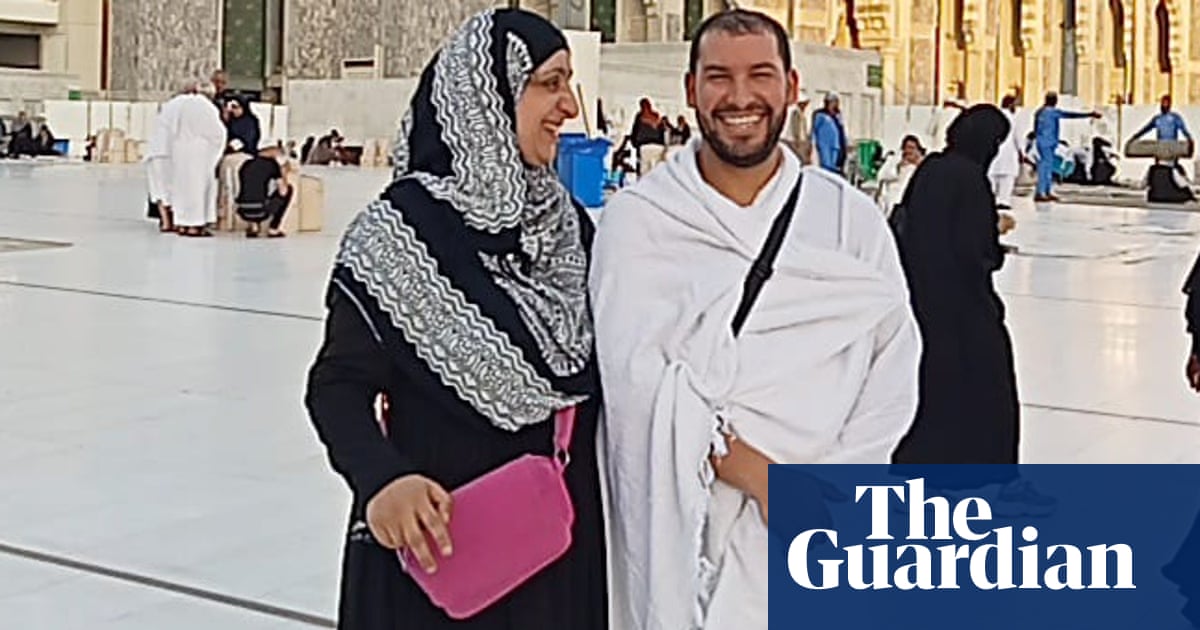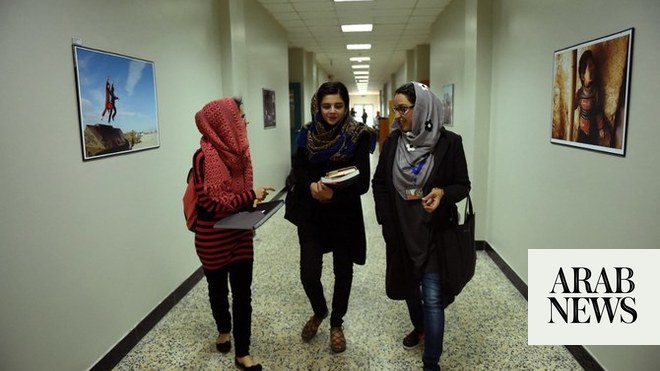
Ahmad, 17, becomes vanguard for distance learning with online classes for 1,600 pupils
The topics for his videos vary from science to math and often include lessons on how to contain the outbreak
KABUL: For a few hours before lunchtime every day, 17-year-old Shabir Ahmad sets up his smartphone on a makeshift tripod, made using three tree branches glued and taped together to hold the device.
Next, he presses the record button to begin his lessons for the day, which he then uploads on his YouTube channel for more than 1,600 followers.
This has been Ahmad’s routine six days a week for more than two months now, ever since Khost province went into coronavirus lockdown along with the rest of Afghanistan.
Ahmad told Arab News: “Because of the lockdown, I couldn’t get in touch with my classmates. I missed them a lot and began to look for a way to remain in contact and at the same time help them and other students with studies.”
The topics for his videos vary from science to math and often include lessons on how to contain the outbreak.
Ahmad said he prepares content for his videos by referring to textbooks a day in advance, so that he has “enough material on hand for the next day’s lessons.”
The half-hour lessons are in Pashtu, one of the two main languages of Afghanistan, with Ahmad’s “students” receiving prompt responses for their questions through WhatsApp and Facebook.
“I thought the internet was a good way to share knowledge. I feel pleased with the feedback I get from them. My goal was not to let the students be deprived of an education and to set up the teaching process through basic means,” said Ahmad, a grade 11 student from the Abdul Hai Habibi school, named after a prominent former Afghan scholar.
In one of the world’s most impoverished and war-torn countries, where people face frequent power shortages and only some have access to the internet, Ahmad’s initiative has been welcomed by his followers and government officials, especially since the country continues to lack a reliable schooling alternative during the lockdown.
Noorya Nahzat, a spokesman for the Education Ministry in Kabul, told Arab News: “This is a noble cause and he needs to be encouraged.”
For his students, Ahmad’s lessons are akin to “water for a thirsty person.”
One of Ahmad’s students, Abdul Qadir, 17, told Arab News: “It’s the only means for students to catch up with lessons when schools are shut because of coronavirus. It’s like giving water to a thirsty person in a desert.”
Appreciating the role reversal and steps taken by Ahmad — who is using his pocket money for the initiative, despite hailing from a low-income family — Mohammad Aref Hemat, his teacher, said the effort was commendable.
He said: “It prevents students from wasting their time and will help Ahmad become an inspiration for other students, in other parts of Afghanistan, to follow similar methods to help themselves and others to learn.”
He added that he was not surprised that Ahmad had “thought of this.”
He said: “He was always a punctual student, one who would come first and leave the school last and also fill in for absent teachers.”
Ahmad has learned a lot from the experience also.
He said he wants to continue learning and hopes to become a doctor in Khost, a notable achievement in a conservative part of the country where until recently, sending girls to school was controversial.
Others think Ahmad’s initiative will have a far-reaching impact.
Shahnawaz, a tribal elder in Khost, told Arab News: “We live in a society where life is very tough. If you do not keep these students busy, then they will not only get disconnected with educational life, but will get deviated in other ways, too. Such efforts stop youngsters, who are deprived of education, from becoming drug addicts, or from joining criminal or militant groups.”












